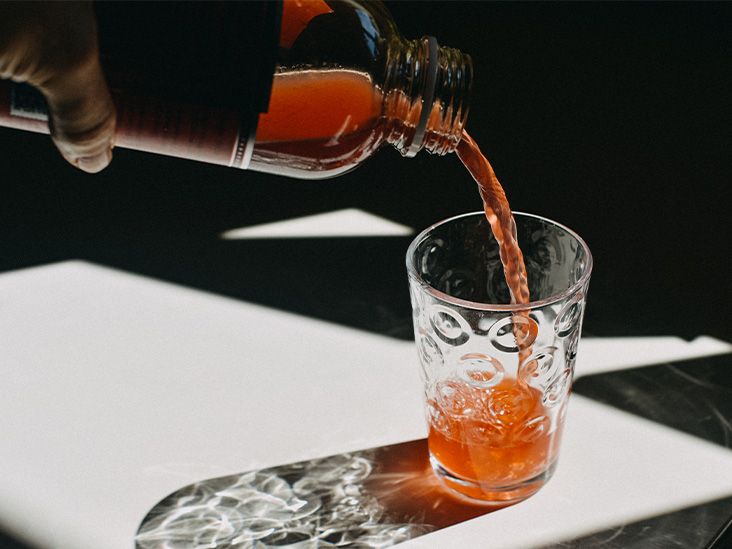Insomnia is a sleep disorder that can affect people of all ages. Small amounts of alcohol may cause short-term sleep disturbances, but frequent and large quantities of alcohol consumption may lead to chronic insomnia for certain individuals.

People with insomnia may have difficulty falling asleep or keep waking up during the night. Alcohol may disrupt a regular sleeping schedule.
This article reviews the relationship between alcohol and insomnia, including how alcohol can affect sleep quality alongside the risks of poor sleep quality. It also considers ways to manage insomnia and prevent sleep disruption and answers some frequently asked questions.
A note about sex and gender
Sex and gender exist on spectrums. This article will use the terms “male,” “female,” or both to refer to sex assigned at birth. Click here to learn more.
Individuals with insomnia have difficulty maintaining a consistent sleep schedule.
Symptoms
Insomnia may be different for each person. However, some of the more common symptoms include:
- lying awake for a long time before sleeping
- sleeping for only short periods
- waking up repeatedly at night
- waking up too early
Insomnia can make it difficult to complete daily tasks. It can also negatively affect mood, which can, in turn, affect personal relationships.
Causes and risk factors
Stressful life events
- an unexpected job change
- cross-country move
- interpersonal conflict
Generally, females and older adults are at a
Certain medications may cause insomnia as a possible side effect. For example, people may experience
An uncomfortable sleep environment can make getting a good night’s rest challenging.
Consuming certain substances, such as alcohol, can disrupt sleep schedules. This is because alcohol works as a central nervous system depressant.
Many people with insomnia may have difficulty falling asleep at night. As a result, they may consume alcohol to
Studies estimate that
Likewise, long-term reliance on alcohol for sleep
Individuals who have attention deficit hyperactivity disorder (ADHD) are also particularly affected by insomnia. A
There is a higher prevalence of insomnia in people with ADHD and AUD, but consuming alcohol to manage insomnia generally worsens sleeplessness. It can even increase the risk of developing AUD.
However, in the second half of a night’s sleep, alcohol diminishes the amount of REM sleep. Alcohol’s negative effects on sleep quality worsen after several nights of drinking.
Drinking alcohol before sleep also affects the cardiovascular system. A 2018 study found that drinking before bed elevated heart rate during sleep. It also negatively impacts the recovery that the body experiences during sleep.
People who drink alcohol before sleep are also more likely to experience breathing difficulties at night. They will also experience shorter periods of sleep, resulting in less restful sleep overall.
Individuals living with AUD experience
Having a beverage containing alcohol in the evening from time to time may slightly disrupt sleep, but consuming alcohol for multiple nights in a row or every night carries a
An inadequate amount of quality sleep can have many effects on health. Long-term sleep deprivation
A 2019 study showed that individuals who sleep for under 6 hours each night have a 20% higher chance of heart attack than individuals who sleep between 6 and 9 hours.
The
Additionally, low-to-moderate alcohol consumption is always the best practice for minimizing sleep disruptions or health concerns. The
If a person chooses to consume alcohol, drinking in moderation several hours before bed is the best practice for avoiding sleep disturbances.
Lifestyle changes such as avoiding alcohol hours before sleep may be sufficient for treating mild, short-term insomnia.
However, other recommendations include the following:
- avoiding caffeine in the late afternoon and evening can promote restful sleep
- staying away from computer or telephone screens before bedtime can also promote relaxation
- having a consistent bedtime routine, which may include the following:
- taking a bath
- stretching gently
- journaling
More
Certain medications and supplements can also encourage a good night’s sleep. These may include:
- melatonin
- antipsychotic medications such as quetiapine
- select antidepressants
Treating these conditions may be necessary as some individuals experience insomnia due to other health issues.
Ultimately, no two cases of insomnia are the same, and no treatment plan is right for everyone. Anyone experiencing insomnia should speak with a doctor to learn more about what treatments may work best for them.
Below are some common questions around alcohol and sleep quality.
How does alcohol affect sleep apnea?
Consuming alcohol may present a higher risk of developing sleep apnea. In a 2018 study, researchers found that alcohol increases this risk by
People with sleep apnea should consider avoiding or reducing alcohol consumption. A person can speak with a doctor to discuss the best way to treat and manage their condition.
Are there any differences in how alcohol affects males or females?
Males consume
Females who drink alcohol have a higher risk of:
How does alcohol withdrawal affect insomnia?
Many people with AUD experience insomnia
- headaches
- anxiety
- elevated blood pressure
- stomach issues
Can alcohol cause anxiety that leads to insomnia?
Many people with AUD also experience anxiety. They may turn to alcohol to reduce their anxiety symptoms, which also increases insomnia, exacerbating their anxious feelings.
Research shows that between 33% and 40% of people who consume alcohol experience mild to severe anxiety. Anxiety symptoms can cause or worsen insomnia for some individuals.
Treating anxiety can help
Alcohol — even in moderate amounts — can disrupt healthy sleeping patterns. For some individuals, consuming alcohol can cause or exacerbate insomnia.
Long-term alcohol use negatively affects REM cycles and decreases sleep quality. Over time, sleep deprivation can increase the risk of several chronic health conditions.
When a person drinks alcohol, doing so in small or moderate amounts several hours before sleep can reduce the chance of sleep issues.


